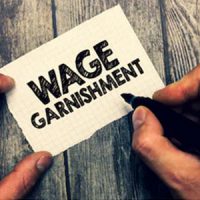Does Bankruptcy Stop Wage Garnishments?

Most of us work because we have to in order to earn a living to support ourselves and our families. There is nothing more frustrating than working your entire pay period only to see your paycheck be short changed due to a wage garnishment, no matter how much debt you may know you’re in. This is even more heightened if you were already living on a tight budget and now have even more funds coming out. In that case, you may now be struggling to meet even the most basic of living expenses.
And sadly, statistics show that wage garnishment happens more than any of us would like to think. One report by ADP Research Institute indicates that over seven percent of the 13 million employees it assessed in a one year period had had wages garnished. If your wages are currently being garnished or you have reason to think that they will be in the near future, the good news is that bankruptcy may offer a solution.
How Does Wage Garnishment Happen?
Governed by Chapter 77 of the Florida Statutes, Florida wage garnishment laws allow your employer to withhold part of your wages to pay off unpaid debt. Typically, this garnishment occurs because a creditor sues you for nonpayment of a debt, wins in court, and obtains a court order to garnish your wages. However, there are other debts which do not have the same requirements to initiate a garnishment. For example, if you owe back taxes, a balance on federal student loans, or have an outstanding child support obligation, your wages can be garnished without a court order. Regardless of the reason for it, a wage garnishment can technically continue until the entire amount owed has been collected, which may also include interest.
Can All Wages be Garnished?
You are typically not in danger of having all of your paycheck taken from you. Importantly, your garnishment amount is generally limited to approximately 25 percent of your disposable income by federal law when it comes to most kinds of debt. Certain forms of income are also excluded from garnishment altogether, such as social security benefits.
How Does Filing for Bankruptcy Affect a Wage Garnishment?
Fortunately, filing for bankruptcy halts most actions that creditors can take against you, including wage garnishment. This is due to something called the automatic stay, which places a freeze on any collection actions by creditors from the moment a borrower files for bankruptcy. Luckily, the stay extends to wage garnishments, meaning that if you are currently dealing with a wage garnishment but are planning to file, you will soon have relief.
Help From Local Florida Bankruptcy Attorneys
The best way to determine how bankruptcy could help your situation is to speak with an experienced bankruptcy attorney. As the Plantation bankruptcy attorneys at Nowack & Olson, PLLC, you can look to us to help you move toward a solution that can rid you of overwhelming debt and escaping harassment from creditors. We have extensive experience helping consumers and businesses find the right bankruptcy solution and successfully navigate through the bankruptcy process. You should contact us today for a free one-on-one consultation so that we can begin using our knowledge to your advantage.
